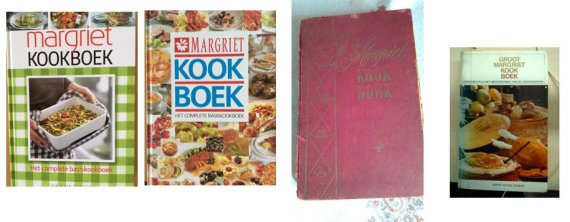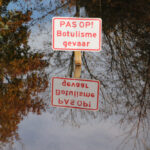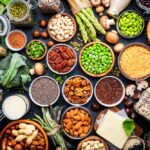‘Eating patterns are usually studied via questionnaires,’ said Buisman, a PhD candidate at Operations Research & Logistics. But cookbooks are also a valuable source of information. Together with her colleague Jochem Jonkman, Buisman studied diverse editions of the Dutch Margriet Kookboek. She collected recipes dating from 1950, 1970, 1989 and 2010. ‘We used these cookbooks because they contain a lot of easy recipes for daily use, and the books sold well.’
Smaller portions
They selected 187 recipes for evening meals and did a computer analysis on the basis of the ingredients. Especially notable was that, as time passed, the portions grew smaller, with fewer grams per person. ‘But you have to realise that, in the 1950s, people ate three times a day and often did exerting physical work,’ Buisman added. In the more recent recipes, the portion of vegetables and basic ingredients like pasta and potatoes, was relatively smaller (expressed in the number of grams per 100 kilocalories). But the share of protein, especially animal protein, increased.

The researchers compared their findings with the Dutch National Food Consumption Survey (NDFCS), which has recorded the eating patterns of the Dutch population since 1987, and they saw considerable similarities. However, there were a few differences. The NDFCS results showed an increase in the share of vegetable proteins rather than animal proteins. They also saw an increase in the amount of carbohydrates. Buisman: ‘This is probably because the snacks between meals and sandwiches are rich in carbohydrates. The cookbook analysis focused only on evening meals.’
Buisman thinks that it would be interesting to expand the cookbook analysis and also not to limit it to evening meals. ‘I don’t think that cookbook analyses could replace questionnaires because the latter provide much more detail. But you can spot trends with relatively little effort, and then you could focus on them.’ The cookbooks could also provide a solution if no other information was available. Buisman herself won’t continue the research. ‘This was a project that I was doing in addition to my PhD research. My own research is about food waste.’

 The researchers compared recipes from diverse volumes of the Margriet Kookboek. Photo: Marjolein Buisman
The researchers compared recipes from diverse volumes of the Margriet Kookboek. Photo: Marjolein Buisman 

